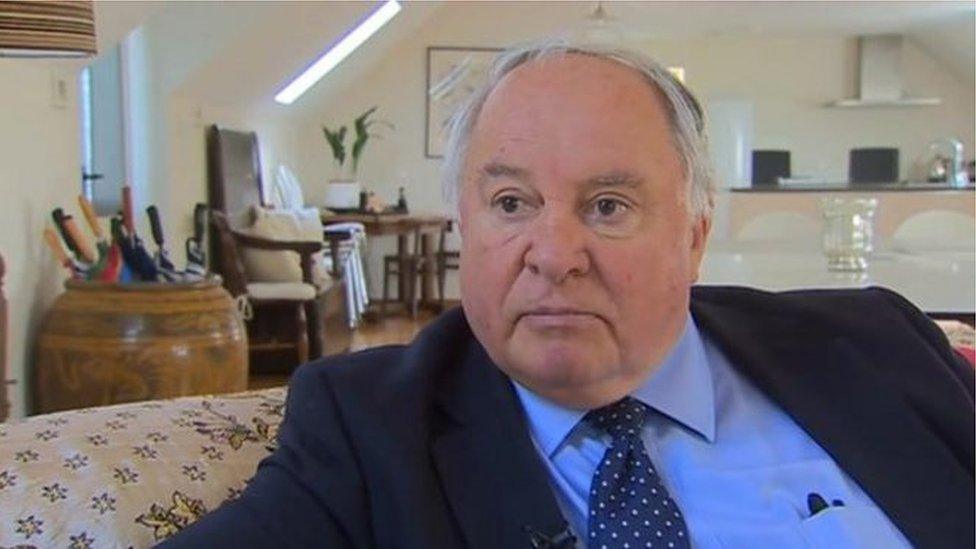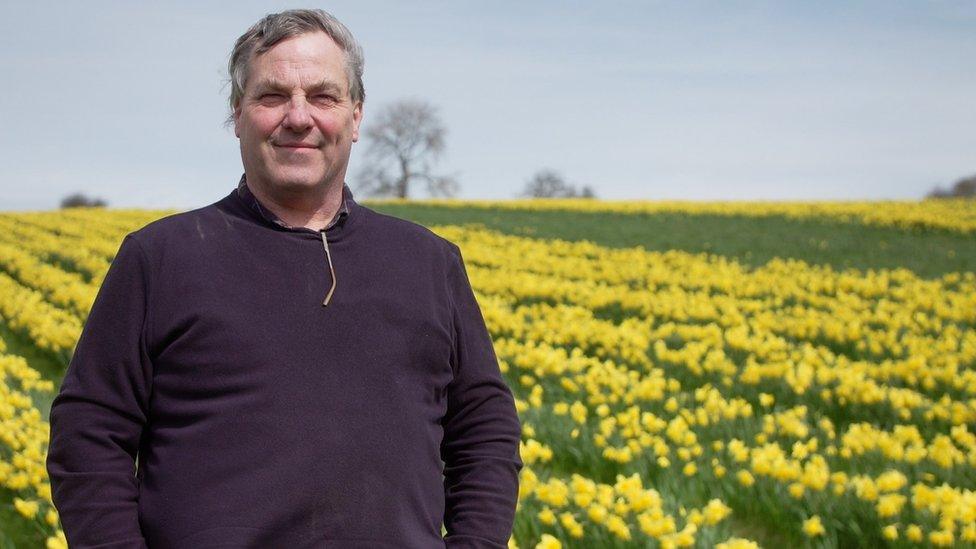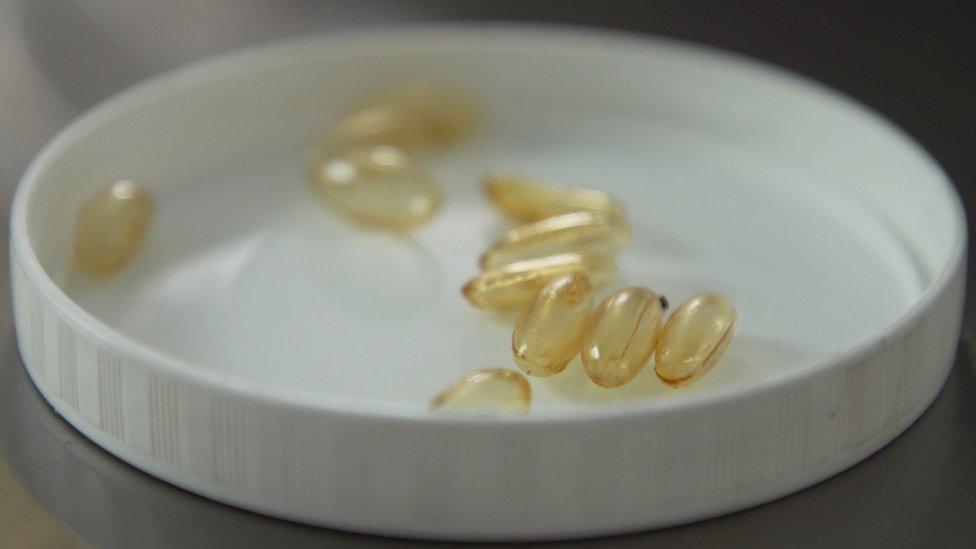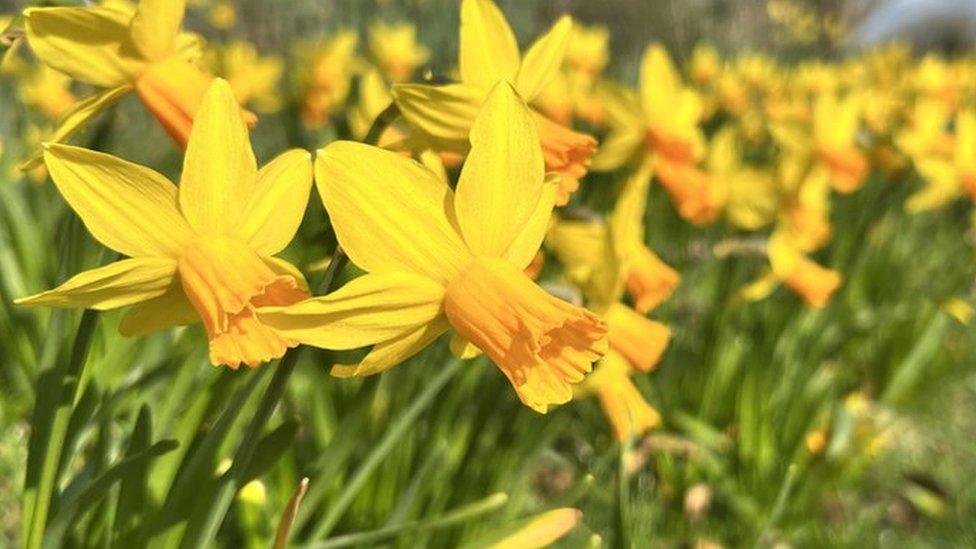Daffodils to treat Alzheimer's could be Welsh hill farming's future
- Published
Farming: Alzheimer's treatment could see more daffodils in Wales
Daffodils grown to treat Alzheimer's disease could be the future of hill farming in Wales.
Pharmaceutical entrepreneur Sir Roger Jones said more of the plants were needed by his industry.
The firm he chairs, Agroceutical, has pioneered their use in treating Alzheimer's and is producing an over-the-counter supplement. It wants clusters of growers established.
The pills could be available for sale by spring 2023.
Agroceutical founder and director, hill farmer Kevin Stephens, has been growing Wales' national flower in Powys' Black Mountains for more than a decade.
He discovered a hardy daffodil variety, grown under stress in wind-swept conditions, produced higher levels of the chemical galanthamine.
That is an approved treatment for slowing down the progress of vascular dementia and Alzheimer's disease.
The farm harvests enough to help about 9,000 patients a year.
Agroceutical has set its sights on producing an over-the-counter brain supplement with Canadian neuroscience company Neurodyn Life Sciences.

Pharmaceutical entrepreneur Sir Roger Jones said more of the flowers were needed by his industry
That would be exported for sale in North America.
If all goes to plan, more daffodils will need to be grown across Wales' uplands, Mr Stephens said.
He hopes to work with clusters of farms, with each planting a couple of fields with daffodils while grazing their sheep among the rows of flowers.
Mr Stephens said sheep don't like daffodils but will eat the grass in between.
"The existing sheep enterprise can carry on as normal," he said.

Agroceutical founder and hill farmer Kevin Stephens grows daffodils in Powys' Black Mountains
"This presents the opportunity of an additional income rather than an alternative," he said.
"As this scales up we will see daffodils across the tops of many of the upland areas of Wales."
Mr Stephens said there was huge potential for Wales to tap into pharmaceutical demand for natural ingredients.
He hoped the project would form a blueprint for growing other medicinal crops in the uplands.
Former BBC governor Sir Roger was excited by the venture's potential.

A machine has been designed to turn the useful parts of daffodils into a gel pill
"This is an opportunity for Welsh farmers to revitalise, an opportunity to grow a yield and make a profit," he said.
"It's one way of making sure we enrich our rural communities in the uplands."
The brain pills will be manufactured in Tafarnaubach, in Blaenau Gwent, by Softgel Solutions.
It has designed a machine to produce batches of gel pills.
The firm's Dean Marsh said: "Eventually as we go commercial we can bring in bigger machines and (there will be) more output."
The Welsh government subsidy Wales' hill farms rely on is currently under review.
The latest UK farm income figures show 19% of Welsh farms had an income of less than zero with an average income of £26,000 per farm.
NFU Cymru policy adviser Dafydd Jarrett believed the idea was a chance for hill farms to add a string to their bow.
"Millions of people suffer from this disease and anything that can be done to mitigate the symptoms is most welcome," he said.
"If that something can come from the upland farms of Wales, then all the better."

AMY DOWDEN, CHARLOTTE CHURCH, GREGORY PORTER & AMY WADGE: It's Showtime with Michael Ball!
CAREER CHANGE WITH A DIFFERENCE: Police new recruits adapt to life on the beat

- Published19 March 2022
